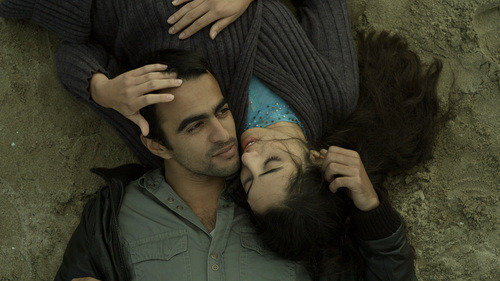Mapping Subjectivity
dal 31/10/2012 al 24/11/2012
Segnalato da
Ridha Behi
Mohamed Aboulouakar
Ahmed Zir
Ahmed Bennys
Assia Djebar
Simone Fattal
Raja Amari
Jilani Saadi
Said Marzouk
Abu Wael
Ala Eddine Slim
Youssef Chebbi
Lamine Ammar-Khodja
Jytte Jensen
Rasha Salti
31/10/2012
Mapping Subjectivity
The Museum of Modern Art - MoMA, New York
Experimentation in Arab Cinema from the 1960s to Now, Part III. The final installment of Mapping Subjectivity, organized around the theme "Transgressions", explores how filmmakers and artists from the Arab world have dealt with shifting attitudes towards sexuality and gender roles in the Middle East, and presents personal interpretations of the very real social transformations presently taking place throughout the region.

Curated by Jytte Jensen and Rasha Salti
This third and final installment of Mapping Subjectivity, organized around the theme “Transgressions,” explores how filmmakers and artists from the Arab world have dealt with shifting attitudes towards sexuality and gender roles in the Middle East, and presents personal interpretations of the very real social transformations presently taking place throughout the region.
As in the preceding editions, Mapping Subjectivity looks into the region’s largely unknown heritage of auteur, personal, and sometimes experimental film, highlighting kinships in sensibilities, approaches, and poetics across generations and countries. Works selected hail from Algeria, Egypt, Lebanon, Morocco, Palestine, Syria, and Tunisia, and include film and video, shorts and features, documentary and fiction that reflect a diversity and richness of voices and visual languages.
Part III includes titles that are considered auteur classics in Arab cinema, such as Ridha Béhi’s Sun of the Hyenas (Tunisia, 1977); Mohamed Aboulouakar’s rarely screened Hadda (Morocco/France, 1984); several recently restored and digitized Super 8mm films by Ahmed Zir, shot between the late 1970s and now; and Ahmed Bennys’s astonishing documentary/animation Mohammadia (Tunisia, 1974). Myth and music are explored with evocative imagination by Eric and Marc Hurtado (Etant Donnés) in Jajouka, Something Good Comes to You (Morocco/France, 2012).
Arab women directors have been fearless in forging a critical voice and confronting questions of gender and sexuality, as evidenced by Algerian novelist, scholar, and filmmaker Assia Djebar’s La Nouba (Algeria, 1977); Lebanese visual artist Simone Fattal’s Autoportrait (Lebanon/France, 1972/2012); award-winning director Raja Amari’s Buried Secrets (Tunisia, 2009); and Tender is the Wolf (Tunisia, 2006), by filmmaker Jilani Saadi. Male directors also confront these issues, as in the rarely seen classic My Wife and the Dog by Saïd Marzouk (Egypt, 1971) and Tawfik Abu Wael’s Last Days in Jerusalem (Palestine/France, 2011).
The overwhelming social and political upheavals that have rocked the Arab world since 2011 have begun to inspire new approaches to filmmaking. Filmed on the border between Tunisia and Libya, Babylon (Tunisia, 2012), by Ala Eddine Slim, ismaël, and Youssef Chebbi, is an astounding meditation on the politics of humanitarian aid and international intervention, while Lamine Ammar-Khodja’s Ask Your Shadow (Algeria/ France, 2012) chronicles a man’s return home, after eight years of absence, on the eve of the outbreak of protests.
Opening: November 1st, 2012
The Museum of Modern Art - MoMA
11 West 53 Street, New York
Hours
All days 10:30 a.m.–5:30 p.m.
Friday 10:30 a.m.–8:00 p.m.
Tuesday closed
Admission
Adults $25
Seniors (65 and over with ID) $18
Students (full-time with current ID) $14
Children (16 and under) Free
This policy does not apply to children in groups.
Members Free
Guests of Members $5 (limit of five per visit)



